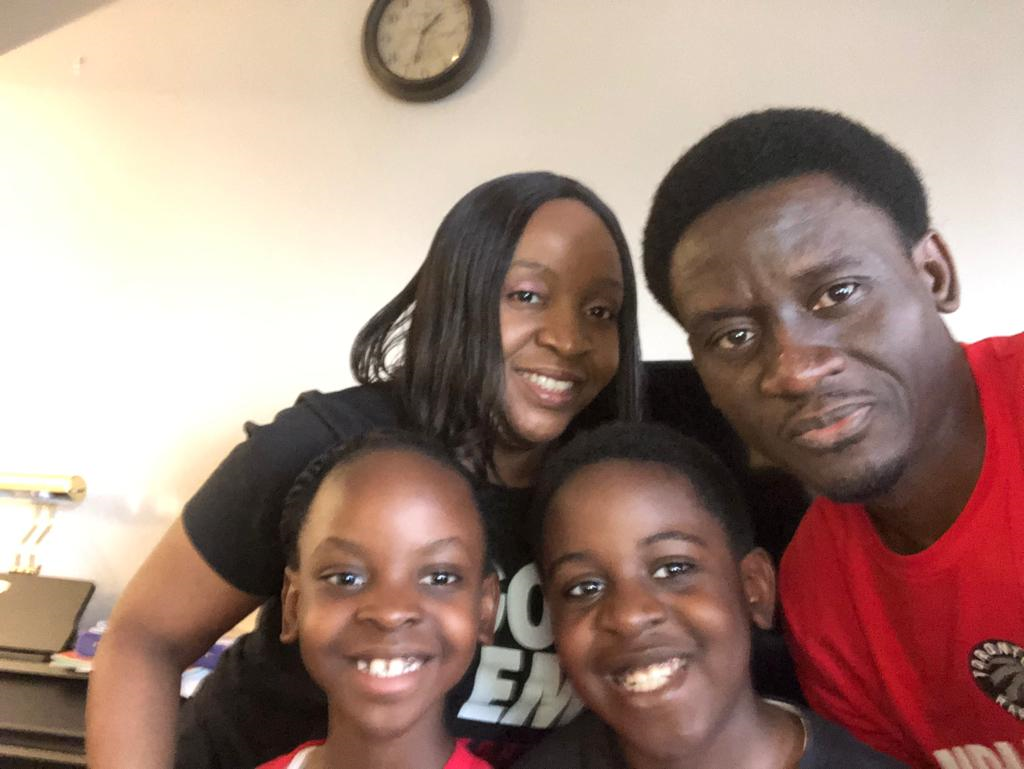“Sometimes recruiters will ask you, ‘Do you have any Canadian experience?’” says Chimena Godwin Ijeh.
“And I’m like, I’m a student. I have Canadian experience as a student in Canada.”
Ijeh was referring to his experiences job hunting as a post-graduate student.
But the Toronto-based 44-year-old, who at the time had just earned a master’s degree in engineering management from the University of Ottawa, had also left a career as an IT project manager in Nigeria—one that took him to the UK, Ireland, Germany, Spain, Sweden, Finland, Sierra Leone, Ethiopia, Cameroon, Ghana, and Chad to work on projects.
Yet his work for multinational companies and several countries abroad didn’t seem to count, something many professionally accomplished immigrants discover when they arrive in Canada.
Bumpy beginnings
Back in Nigeria, Ijeh travelled extensively for work, engaging with corporate stakeholders, managing different teams, and switching from hat to hat as a project manager. His wife, who earned her MBA in the UK, worked for a consulting firm.
Together they decided to further their careers in Canada, with Ijeh, in particular, considering graduate school. So he applied for a study permit and arrived in Ottawa as an international student in January 2016. Soon after, his wife and two young children followed.
Two months after graduation, Ijeh landed an internship with a ‘big five’ bank. He stayed for seven months and got a two-month extension, after which the contract ultimately ended. Then he found a role with a technology and media company, which lasted just shy of a year. This was followed by a short contract with a non-profit, which also ended sooner than he anticipated.
“I went from one short contract to another and then was out of a job again,” he says.
He describes those first few months as ‘bumpy’. “I’ve always been a full-time employee, you know. So coming in, you [learn to] understand, what does it mean to be on a contract?”
“So you watch your back after the first, second experiences,” he adds. “You could come in today, and realize that you don’t have a job.”
Underemployment among immigrant Canadians
In a January 2020 report, ‘Employment Gaps and Underemployment for Racialized Groups and Immigrants in Canada’ published by the Public Policy Forum, the Diversity Institute, and the Future Skills Centre, research authors Eddy Ng and Suzanne Gagnon point out how “the devaluation of foreign credentials is one of the most widely cited factors” behind negative work-related outcomes for immigrants.
It also cites the 2019 World Education Services survey, which reports that 30.8 per cent of immigrant respondents say employers do not accept their qualifications and experiences, while 25.2 per cent say their international education is not being recognized. Country of origin and gender play into these factors, as well.
“As you can tell from the report, if you’re from an anglo country or if you are white from even a developing nation, you certainly have better a chance of landing the position that you want, or at least having an equivalent career to the one you had prior to arriving,” says Ng, a management professor at Bucknell University.
“But if you were to come from certain countries or if you have a foreign-sounding name, you suddenly have a much tougher chance. It’s just simple and plain case discrimination.”
“When you see a foreign-sounding name, it’s not that you are racist in particular, but you might think, ‘Oh, this person may not speak English really well,’ or may not understand the local context,” he adds.
“It’s an implicit bias—unconscious bias against things that we do not know.”
The Ontario Human Rights Code specifies that every individual has a right to equal opportunities without discrimination, and sets out guidelines for employers to abide by this code. These guidelines include discouraging against discounting foreign work experience, or giving it less weight compared to Canadian work experience; and against requiring applicants to have Canadian work experience to be eligible for a role.
But things are more complex in practice, says Will Tao, a Vancouver-based immigration lawyer and founder of Heron Law Offices. [Note: Will Tao is also a contributor to New Canadian Media.]
“It doesn’t have to happen in a written advertisement or on a job posting, or even as an interview question. Applicants are asked to provide their resume. And how do you exclude interviewees at the end of the day? It’s by looking at the resume,” he says. “So that process itself is discriminatory. But it would be very difficult to prove a discrimination claim.”
This goes beyond hiring newcomers, says Tao. “Even in general hiring. You look at [a resume] and you’re like, ‘Oh, this person hasn’t spent that much time here.’ You’re pretty much saying the same thing.”
“It might not end up in a human rights tribunal, it might not end up as a claim, but this is a practice that’s happening.”
Networks and Coaches
At a friend’s recommendation, Ijeh connected with ACCES Employment, a not-for-profit corporation that helps newcomers find work with partner companies across the Greater Toronto Area.
One of these companies is IBM. Through SkillsBuild, its digital learning platform, IBM helps equip newcomers with tech-related skills, as well as soft skills like interviewing and networking.
“One of the big things we noticed is that it’s great to have access to skills development, but you [also need] coaches or mentors to help you if you want to know what it’s like to work in a job, or to build your network,” says Jennifer Roynon, CSR Lead at IBM Canada.
“A lot of new immigrants don’t have the network—they’re not able to get connected, or understand how to apply for jobs, and really get that Canadian, local context.”
Ijeh echoes this. “One thing we’ve come to realize is a lot of the job markets are hidden. And you, as an immigrant, you don’t have that network to access those pool of jobs,” he says. “Which is why a lot of times we get ghosted. You apply and you don’t get to hear back.”
Allison Pond, CEO of ACCES, points out that while “‘Canadian experience’ is really something an employer should not be asking for,” she thinks that “employers often go toward the familiar, and that creates barriers and discrimination.”
And so one of their goals, says Pond, is to break down those barriers. Among their events is a speed mentoring session where participants from partner companies are paired with job seekers.
“After a speed mentoring session, you’ll always hear companies or employers sort of saying, ‘Oh my god, I had no idea. I can’t believe the skills and the talent these people have,’” she says.
“We want to give newcomers the tools and connections and networks. And we want to bring employers in and say, look at what we have as talent. Look who’s here. Look at the skills that are coming to Canada every day.”
Work to do
Ijeh took SkillsBuild’s eight-week cybersecurity course, and attended talks facilitated by ACCES featuring executives from various industry sectors.
During one of their networking events, he met with a recruiter, who invited him to interview. After a couple of months, the company made an offer, and in October 2020 Ijeh took on a new role as an IT management consultant for IBM.
Ijeh considers himself fortunate. “I will say I was pretty lucky after my graduation, compared to a lot of my colleagues—maybe because of my experiences,” he says. He adds that he found encouragement through ACCES as well.
Still, he thinks a lot more can be done.
“I think, you know, the government can still do a lot more to encourage or motivate organizations to be more open to immigrants, and especially people of colour in particular,” he says.
“Because there are biases in industries and organizations, which is impacting a lot of people. I have friends with different stories too, in that line.”
Johna Baylon is a freelance journalist and writer based in Vancouver, B.C. She is also NCM's Local Journalism Initiative Reporter. She is drawn to stories around immigration, care work, and communities in the diaspora. Born in the Philippines, Baylon grew up in Hong Kong, where she covered food and design as a writer and editor prior to moving to Canada in 2019. Find her on Twitter @johnabaylon.




